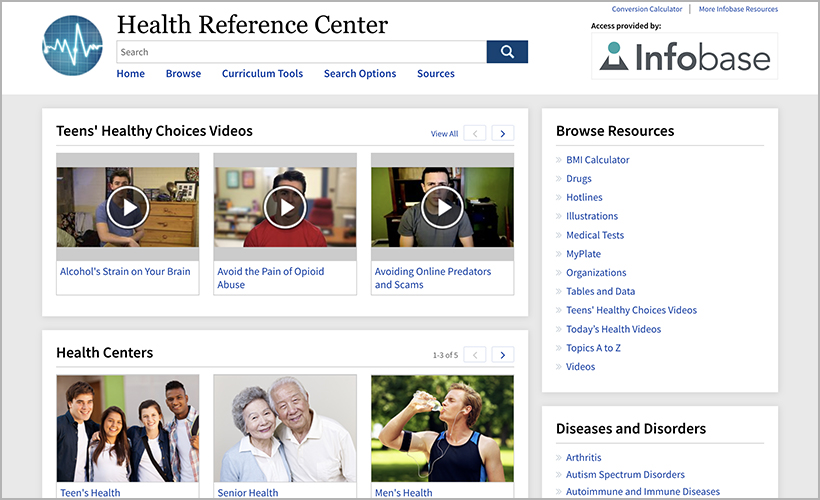Librarians, Fight Misinformation with Infobase

Like it or not, we live in an era where misinformation and disinformation are abundant, and a misinformed public cannot make responsible decisions. As such, information literacy, including news literacy and media literacy, has never been more crucial. The foundational critical-thinking skills that come with information literacy will benefit researchers of all ages, and the communities they live in, throughout their entire lives.
Infobase is proud to provide tools that can help librarians promote information literacy. Our research resources contain more than 80 years’ worth of authoritative, reliable content across a wide range of areas—from history, science, literature, and careers to health, current issues, and more. The wide range of regularly updated material included on our platforms has been written by experts and vetted by our editors, making them resources librarians, students, and patrons can trust. The sources Infobase databases draw upon include expertly researched and written content from a wealth of proprietary titles, and many of our products feature focused Topic Centers that showcase the best editorially curated resources for a particular topic to provide a great starting point for research. Many also feature important statistics and primary sources—including historical documents and journal articles—that can help researchers double-check facts.
Here are just some of the many Infobase products that can help promote news and information literacy.
World News Digest—The Antidote to “Fake News”
In our age of information overload, World News Digest offers clear and cogent political, economic, and cultural stories that give a sense of time, place, and circumstance. World News Digest is a news archive that provides critical context and background on key issues and events in the news going back to 1940. Hundreds of institutions rely on World News Digest for vital information and context on today’s top issues.
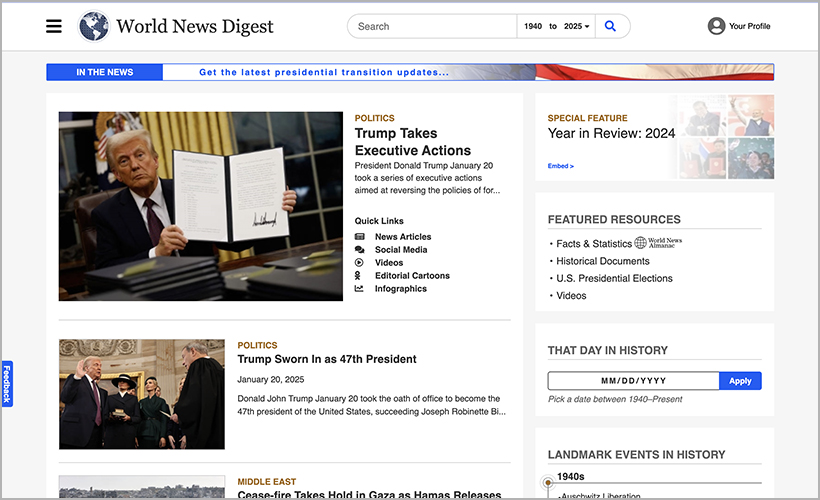
Issues & Controversies—Truly Unbiased Coverage of Today’s Hot Topics
Issues & Controversies helps researchers understand today’s crucial issues by exploring hundreds of hot topics in politics, government, business, society, education, and popular culture. Updated weekly, with an extensive backfile, Issues & Controversies offers in-depth pro/con articles—each presenting both sides of an issue clearly, coherently, and without bias—made to inspire thought-provoking debates and build critical-thinking skills. Its straightforward presentation of the key facts, arguments, history, and current context of today’s most important and timely issues makes the database an ideal resource for research papers, debate preparation, and persuasive writing assignments. Every pro/con article is written by our own expert writers and editors, and each one includes passages and quotations from primary sources and a full range of supporting materials.

Credo Source and Credo Reference—Start Your Research Here
The high school and college students at your institution are most likely still learning how to research and may rely heavily on Google and Wikipedia when putting together assignments. Introduce them to Credo Source for high school libraries and the award-winning Credo Reference for public and higher education libraries, which both give budding researchers access to hundreds of searchable, full-text titles from many of the world’s most respected publishers of reference on the most studied topics, along with thousands of images and audio files.
In addition, these databases also include content that can be used to teach research skills. Credo Source features a section called Research Skill Builders, which includes 100+ minutes of videos and tutorials designed to help students tackle the challenges of 21st-century research. Topics covered include how to use AI to find information, choosing a database, digital citizenship, and more. Credo Reference features Research Quick Tips—concise, informative videos embedded throughout the platform to cultivate information literacy skills while students research—on subjects such as how to avoid bias in your searches, how to find relevant sources, and why you need many sources.
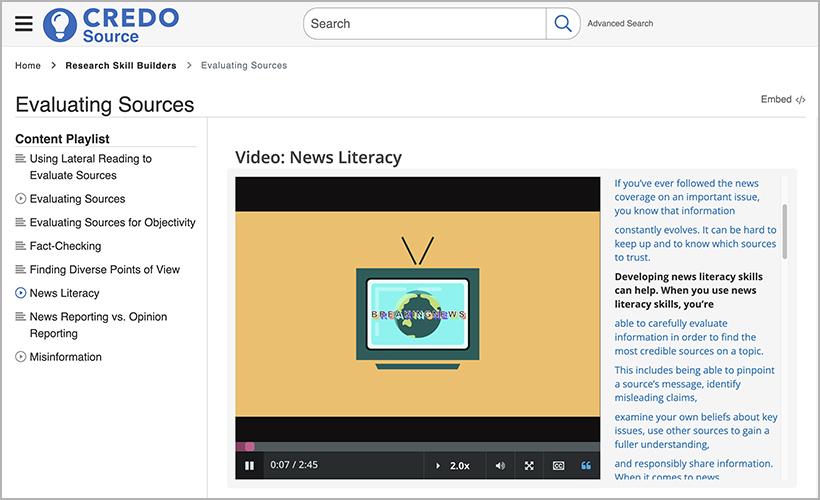
Health Reference Center—Double-Check Those Health-Related Memes
Unfortunately, politics and current events are hardly the only areas where misinformation abounds, especially in the post-COVID era. Health literacy, along with news and media literacy, has become an absolute must. Health Reference Center is a multimedia health library offering up-to-date resources that build practical health knowledge and facilitate safe, trustworthy research. The expertly researched and written content found in Health Reference Center comes from acclaimed sources, including a wealth of proprietary titles—information researchers can trust. Health Reference Center also features thousands of scholarly journal articles from PubMed Central and reference articles from MedlinePlus covering more than 950 diseases and conditions.
Today’s Science—News on Real Scientific Advances
Today’s Science is a database of comprehensive articles that translate scientific articles from peer-reviewed journals into everyday language, making cutting-edge discoveries accessible to a wider range of users and giving students and other patrons the critical-thinking skills they need to comprehend and analyze real-world science. The in-depth coverage spans important advances in biology, chemistry, environmental science, space, physics, and technology. Today’s Science also features links to primary sources, such as scientific journal abstracts and articles, as well as exclusive interviews with researchers where they further describe their work.
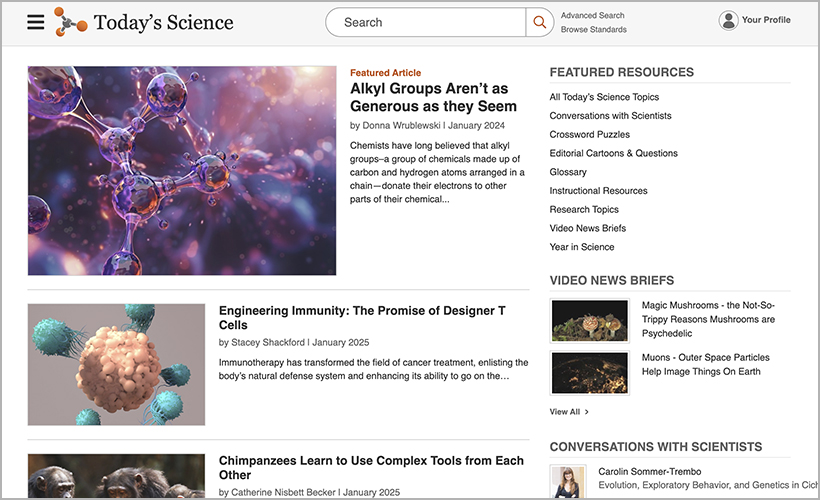
Video On Demand Platforms More Trustworthy Than TikTok
Infobase’s award-winning streaming video resources—which include Learn360 for K–12 schools and districts, Classroom Video On Demand for high schools, Films On Demand for colleges and universities, and Access Video On Demand for public libraries—give educators, students, and patrons instant access to outstanding documentaries, award-winning educational films, independent films, and helpful instructional videos, including those on verifying information in the digital age.
Here are just some of the relevant, informative titles that can be found in our streaming video products. We have included searchable item numbers for your convenience. (Not all titles are available on all platforms or in all countries. Some of these titles contain mature themes or content; viewer discretion is advised.)
- Mastering the Art of Information Literacy series (Item #291369)
- My World Media Literacy (Item #209893)
- Internet Know How (Item #208335)
- Digital Storytelling (Item #195612)
- How to Recognize Fake News (Item #145228)
- Information Literacy in the Digital Age (Item #208338)
- Creative and Critical Thinking (Item #275085)
- Internet Know How (Item #208335)
- Will ChatGPT Do More Harm Than Good? A Debate (Item #287656)
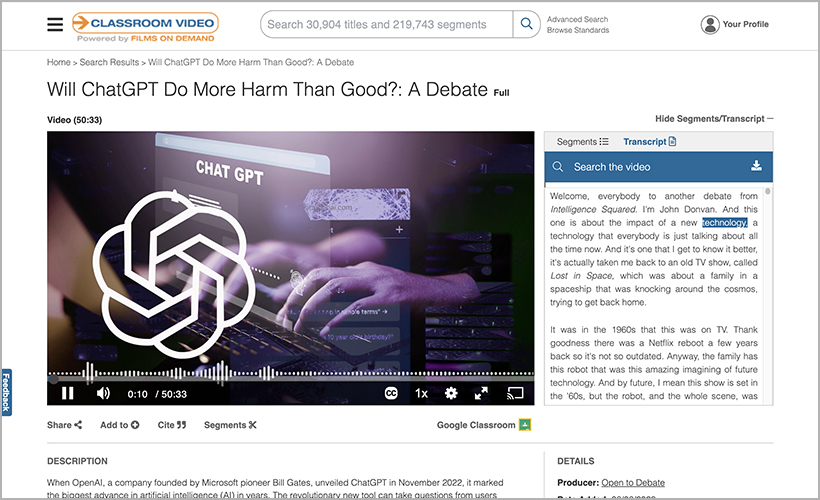
In addition, Learn360 also features Topic Centers on Digital Literacy and Media Literacy that bring together a range of multimedia content that educators can use in their IL lessons.
